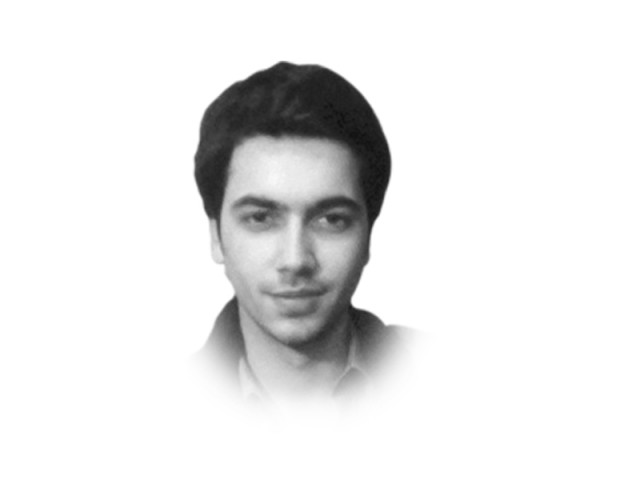Making thought popular again
Leaving aside history, the current academic climate, in terms of fostering ideas, isn’t much to go on.

The writer is studying for the bar at Lincoln’s Inn and tweets @AsadRahim
This is most manifest in the way we teach our history. We have institutionalised chest-thumping to the majority of our students. And we’ve not been much good at it. Other countries have performed far better at regimenting their story. The birth of Kim Jong-il, it is said, caused winter to turn to spring. He grew up to be a talented man, landing eleven holes-in-one during his first golf game. The very purpose of education is to make it beneath the dignity of people to believe such things.
But without education, without a culture of basic inquisitiveness, we’ve been left with Pakistan Studies. And since this narrative creates intellectual voids, they’ve been filled by inflexible reactionaries. Much of our clergy thought Mohammad Ali Jinnah a heretic and rejected Partition, but happily went on to play a vibrant role in Pakistan’s intellectual growth thereafter. As they’re stuck with Muslim Pakistan now, a theocracy it must be. Their more savage cousins have taken this majoritarianism to psychotic levels, as sectarian animals have proven twice in Quetta recently.
But is there free thought at the other end of this anti-intellectualism? Not really. Since most intelligent persons would not swallow the Fauji Flakes narrative and all moral persons would not follow the Kharijis massacring Hazara children, so some are liable to go with anything headed in the opposite direction.
Anyone who calls for Greater Balochistan or Sindhudesh is a secular hero; anyone believing in the idea of Pakistan — as a separate, progressive homeland for the Muslims — is the establishment. Yet, the saints of this counter-narrative have had less than faithful heirs. From the sardars of Balochistan to the ANP run by Bacha Khan’s grandson, all collude with the state when it suits them, while defining themselves in opposition to it. Between the greyness of the statist narrative and the hypocrisy of those avowedly against it, it’s as if one must decide between boredom and self-loathing. As neither side can boast of all that much scholarship, the decision remains an uninformed one. We have a million speechwriters and no historians.
Leaving aside history (that defines nations), the current academic climate, in terms of fostering ideas, isn’t much to go on either. Actively stifling thought permeates every level of academia. Primary school children are openly discouraged from asking basic questions about God, life, society and morality. As they grow up, social convention pushes them hard towards medicine, business or agriculture. The lost souls that actually do make it to the liberal arts universities then realise how practical the social conventions were.
Private university faculty is almost always clashing with vice-chancellors, the vice-chancellors themselves fighting for every last inch of academic freedom from the government. The government cannot understand the term ‘social sciences’, let alone inject more of it into public education. Student unions have less to do with leadership and philosophy and more to do with girly infighting (the ones that aren’t eventually commandeered by thugs). Research is fragmented and, by extension, fresh new ideas are hard to come by. Theses are copy-pasted from dissertations that were plagiarised in the first place. The elite (bereft of such economic considerations) that do go abroad to study social sciences tend to stay abroad. This can change. Pakistani literature is already being taken seriously. People challenging established norms are being heard, if not yet followed. Momentum for educational reform is growing. To become a thinking society, we need to make thought popular again, and we are.
Published in The Express Tribune, February 26th, 2013.
















COMMENTS
Comments are moderated and generally will be posted if they are on-topic and not abusive.
For more information, please see our Comments FAQ